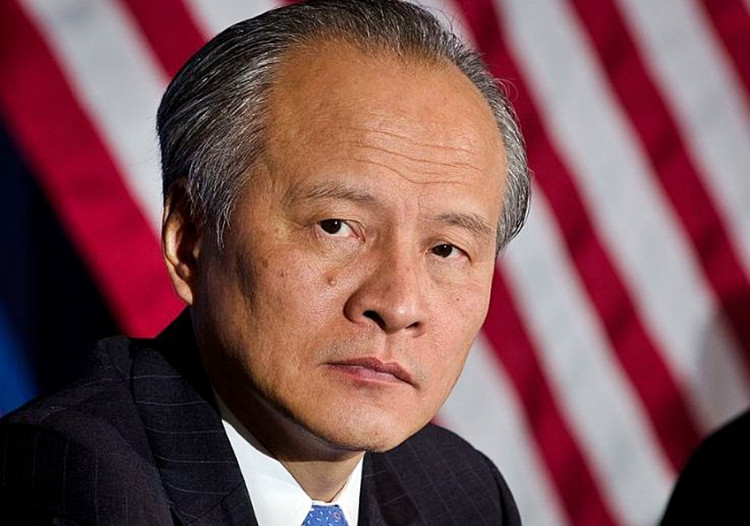Cui Tiankai, China's ambassador to the United States, contends Donald Trump's trade war against China is flat out wrong, and that there will only be losers -- and no winners -- in this disastrous trade war.
In an op-ed published in American media, Cui laid out a cogent, fact-based rebuttal of the main points raised by Trump and his trade team justifying a trade war against China. His piece revolves around the contention that U.S. motives for trade war "are wrong."
Cui noted that Trump's reason number one" for launching this war is he wants to wipe-out China's huge trade surplus. China's trade surplus with the U.S. hit a record high of $275.8 billion in 2017 compared to the previous record of $260.8 billion in 2015. The reason is chiefly that American consumers still buy a lot of the cheap goods China makes and exports to the USA.
For starters, Cui underscored that China "has never deliberately sought a trade surplus since the flow of trade is determined by the market" and not by government interventions.
Cui pointed out that Trump's main criticism against China centers on the latter's persistent trade surplus. Contrary to Trump's long-held feeling that trade deficits are "bad" and illustrate America is "losing" in bilateral trade with China, Cui explained deficits "are not products of ill-intention, nor are they necessarily bad for an economy."
"Generally, they result from how resources are allocated in a globalized economy and are natural reflections of the global value chain," Cui explained. "Besides, some structural reasons, such as the low savings and high consumption rates America maintains, the role of the U.S. dollar as the international reserve currency inevitably leads to trade deficits. The fact that the U.S. government curbs high-tech exports to China makes the deficit even bigger."
The ambassador also noted that a deficit doesn't mean the U.S. is "losing" vis-à-vis China. On the contrary, thanks to the trade with China, "American families have access to more, higher quality, lower cost products. In just 2015, trade with China lowered prices in the U.S. by up to 1.5 percent, saving each family $850 on average," Cui pointed out.
China does not steal intellectual property rights (IPR), claims the ambassador. On the contrary, China is strategically committed to protecting IPR, including those covering foreign nationals. He said China has codified a robust IPR protection legal system that includes establishing IPR courts and dedicated tribunals that enhance the dominant role of the judiciary in IPR protection.
He noted that since entering the World Trade Organization (WTO) in 2001, "intellectual property royalties paid by China to foreign right holders has registered an annual growth of 17 percent, reaching $28.6 billion in 2017. More than $7 billion (25 percent) went to the U.S. Indeed, improving IPR protect is crucial to China's own development, particularly technological innovation."





